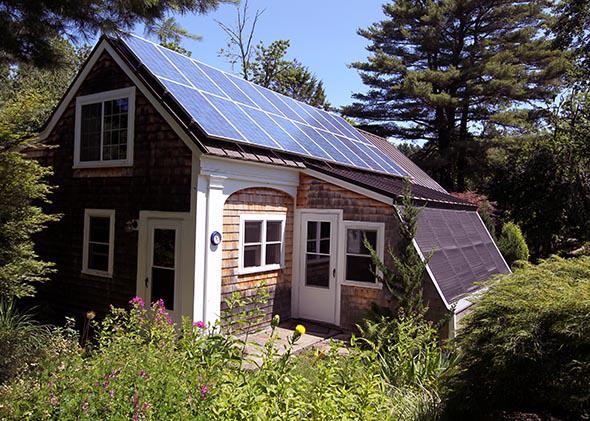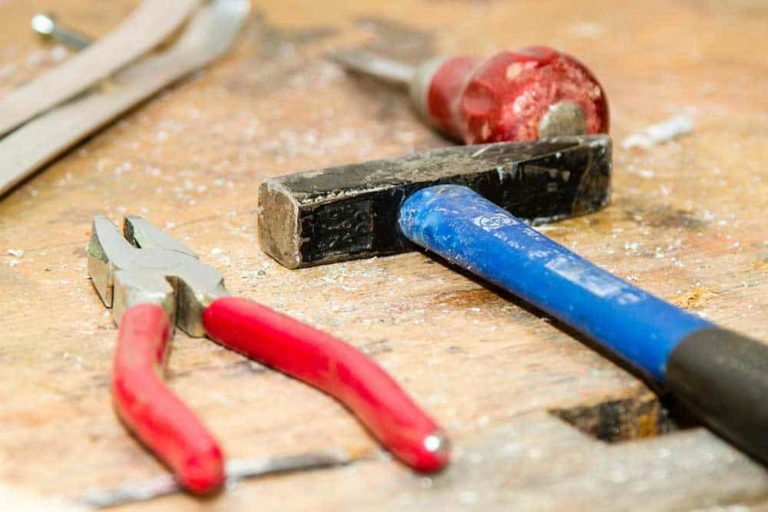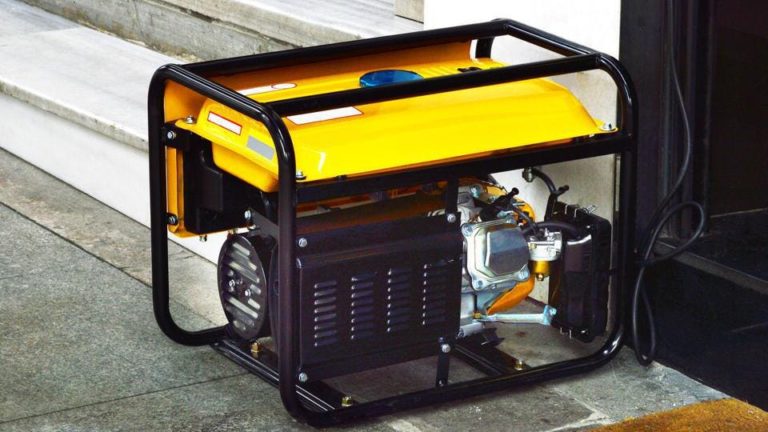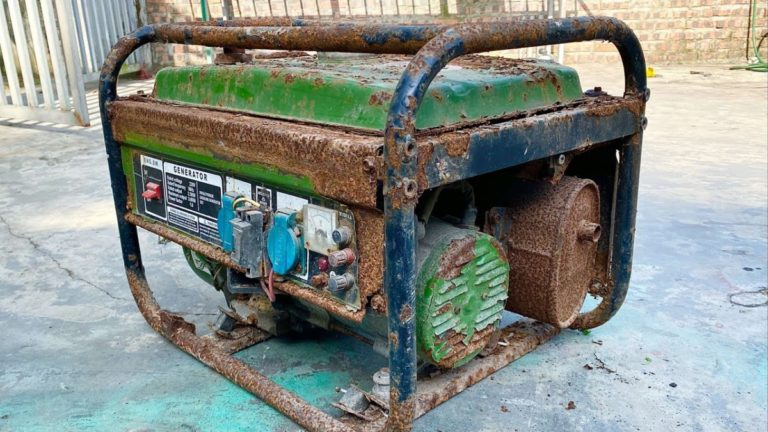Are you tired of relying on unreliable and expensive grid power?
Do you dream of living off the grid, yet still enjoying all the modern comforts of electricity?
Look no further!
Harnessing solar power is a practical and sustainable solution to power your off-grid home.
With the right knowledge and equipment, you can harvest clean, renewable energy from the sun to fuel your daily needs.
We’ll take a deep dive into how to successfully integrate solar power into your off-grid living setup, covering everything from choosing the right solar panels to optimizing your energy storage system.
So let’s get started and start powering your off-grid home with free, abundant sunshine!
Assess your energy needs
Determine how much energy you need to power your home, taking into account factors such as the size of your home, the number of occupants, and your energy usage habits.
Start by taking an inventory of the size of your home, including the number of rooms, the size of each room, and the layout of your floor plan.
This will give you a baseline for estimating the energy needs of your home.
Next, consider the number of occupants and their energy usage habits.
Do you have a large family or live alone?
Do you use a lot of appliances and electronics, or do you prefer to keep your energy usage minimal?
Consider the climate and location of your home, as this can also impact your energy needs.
For example, homes in colder climates may require more energy for heating, while homes in warmer climates may require more energy for cooling.
Once you have taken these factors into account, you can begin to estimate your energy needs.
Start by calculating the total square footage of your home and dividing it by the number of occupants.
This will give you an average energy usage per square foot.
Then, consider the specific energy needs of different areas of your home, such as lighting, appliances, and heating and cooling systems.
By taking a comprehensive approach to determining your energy needs, you can create a more efficient and cost-effective home energy plan.
Choose the right solar panel system
Select a solar panel system that can meet your energy needs, considering factors such as the size of the system, the type of panels, and the warranty.
When selecting a solar panel system, it’s essential to choose one that can meet your energy needs, considering factors such as the size of the system, the type of panels, and the warranty.
The size of the system is critical, as it should be large enough to generate the necessary amount of electricity to power your home or business.
Factors such as the size of your property, your energy usage, and the amount of sunlight your location receives should be taken into account when determining the appropriate system size.
Next, the type of panels is a important consideration, as different types of panels have varying efficiencies and lifespans.
Monocrystalline and polycrystalline panels are the most common types, and they offer high efficiency rates and long lifetimes, respectively.
The warranty is a vital aspect to consider, as it provides protection against manufacturing defects and performance issues.
Look for a warranty that covers at least 25 years, and ensure it includes coverage for parts and labor.
By carefully evaluating these factors, you can choose a solar panel system that meets your energy needs and provides long-lasting benefits.
Consider your location
The amount of sunlight your solar panels receive will affect their efficiency, so choose a location that receives plenty of direct sunlight.
The amount of sunlight your solar panels receive is a critical factor in their efficiency, so choose a location that receives plenty of direct sunlight.
Solar panels work best when they are exposed to direct sunlight for an extended period of time.
This means that south-facing locations are ideal, as they receive the most sunlight throughout the day.
East- and west-facing locations can also work well, but they may not generate as much energy as south-facing locations.
On the other hand, north-facing locations receive less sunlight and are generally not recommended for solar panels.
However, if you do have a north-facing roof, you can still install solar panels, but you may need to consider additional factors such as shading from trees or other obstructions.
Be sure to choose a location that is clear of any obstructions, such as trees or other structures, to ensure that your solar panels receive maximum sunlight exposure.
Install a charge controller
A charge controller regulates the flow of energy from the solar panels to your batteries, preventing overcharging and ensuring optimal battery performance.
A charge controller is an essential component in any off-grid solar power system, as it regulates the flow of energy from the solar panels to your batteries.
Its primary function is to prevent overcharging, which can damage your batteries and shorten their lifespan.
The charge controller does this by monitoring the voltage and current of the solar panel array and adjusting the amount of energy that is allowed to flow into the batteries based on their state of charge.
By doing so, the charge controller ensures that your batteries are always maintained within a safe operating range, preventing overcharging and undercharging.
In addition to preventing overcharging, a good charge controller will also optimize the charging of your batteries, ensuring that they are fully charged and ready to power your off-grid system when needed.
With a high-quality charge controller, you can enjoy optimal battery performance and extend the lifespan of your battery bank, providing reliable power for your off-grid needs.
Choose the right batteries
Select deep cycle batteries that are designed for off-grid solar systems, taking into account factors such as their size, capacity, and lifespan.
When selecting deep cycle batteries for an off-grid solar system, it is essential to consider several factors to ensure optimal performance and longevity.
First and foremost, choose batteries that are specifically designed for off-grid solar systems, as they are engineered to withstand the unique demands of this application.
Look for batteries with a high capacity, as this will allow your system to store more energy and provide longer runtimes.
Consider the lifespan of the batteries, as deep cycle batteries that are designed for off-grid solar systems can last up to 15 years or more with proper maintenance.
In terms of size, choose batteries that are appropriate for your specific system and application.
A larger battery may be necessary for a larger off-grid solar system, while a smaller battery may be sufficient for a smaller system.
Consider the physical size of the batteries and the space you have available for installation.
It is important to choose deep cycle batteries that are built with high-quality materials and designed with advanced technology.
Look for batteries with a high-density plate design, which allows for more efficient energy storage and longer lifetimes.
Select batteries with a low-maintenance design, as this will reduce the amount of upkeep and extend the lifespan of the batteries.
By taking these factors into account, you can select deep cycle batteries that are perfect for your off-grid solar system and provide reliable, long-lasting performance.
Implement an inverter system
An inverter system converts the DC power stored in your batteries to AC power for use in your home. Choose an inverter system that can meet your energy needs and is compatible with your solar panel system.
An inverter system is a important component of any solar-powered home, as it converts the DC power stored in your batteries to AC power for use in your home.
When choosing an inverter system, it’s essential to consider your energy needs and select a system that can meet them.
This involves determining the wattage of your solar panel system and the size of your battery bank to ensure that the inverter system can handle the amount of power you need.
In addition to meeting your energy needs, it’s important to choose an inverter system that is compatible with your solar panel system.
This means selecting an inverter that can work with the same type of solar panels you have installed, as well as ensuring that the inverter system can integrate with your home’s electrical system.
When shopping for an inverter system, look for one that offers high efficiency, low maintenance, and ease of use.
A high-efficiency inverter system will maximize the amount of power you can generate from your solar panels, while low maintenance requirements will ensure that the system runs smoothly and lasts for many years.
An easy-to-use inverter system will allow you to easily monitor and control your solar power system, giving you peace of mind and helping you make the most of your solar investment.
Monitor and maintain your system
Regularly monitor your solar panel system’s performance and maintain it to ensure optimal energy production and battery health.
To maximize the energy production and longevity of your solar panel system, it’s essential to regularly monitor its performance and maintain it.
Start by checking the system’s output every day to ensure it’s operating at peak efficiency.
This can be done using an energy monitoring app or by checking the system’s power output on a smart meter.
Inspect the solar panels and inverters for any signs of wear and tear, such as dirt or damage, and clean them regularly to ensure maximum energy production.
Moreover, keep your battery health in check by monitoring its state of charge and depth of discharge.
This can help you identify any potential issues before they become major problems.
Moreover, check the battery’s temperature, as high temperatures can reduce its lifespan.
By regularly maintaining your solar panel system, you can ensure it continues to operate at optimal levels, producing the most energy possible and extending the life of your system.
Consider energy-efficient appliances
Replace traditional incandescent light bulbs and inefficient appliances with energy-efficient LED bulbs and appliances to maximize your solar power’s energy savings.
By upgrading to energy-efficient LED bulbs and appliances, you can significantly reduce your energy consumption and maximize the benefits of your solar power system.
Traditional incandescent light bulbs waste a significant amount of energy as heat, rather than using it to illuminate your space.
In contrast, LED bulbs use a fraction of the energy to produce the same amount of light, and they last much longer than traditional bulbs.
Similarly, inefficient appliances like old refrigerators and clothes washers use more energy than they need to, while newer, Energy Star-rated appliances can cut your energy usage by up to 20%.
By replacing these old appliances with newer, more efficient models, you can further reduce your energy consumption and maximize the benefits of your solar power system.
Many LED bulbs and appliances are designed with smart features that allow you to control them remotely and optimize their usage based on your energy needs.
By taking these steps, you can enjoy even greater energy savings and maximize the value of your solar power system.
Want More? Dive Deeper Here!
Hey there! If you’re the type who loves going down the rabbit hole of information (like we do), you’re in the right spot. We’ve pulled together some cool reads and resources that dive a bit deeper into the stuff we chat about on our site. Whether you’re just killing time or super into the topic, these picks might just be what you’re looking for. Happy reading!






